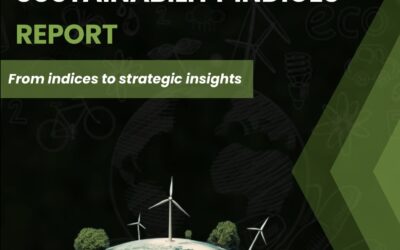Game of Consultants
Our newest initiative yet, Game of Consultants, tests your consulting knowledge & analytical eye to the fullest. Attempt it and see how good you are! We add new ones every week
NOVICE
Guesstimate The Total Running Time of Household ACs in Delhi in the Month of May
Let’s guesstimate the the total running time of household ACs in Delhi in the month of May.
The Number of Instagram Stories Uploaded in a Day in India
Let’s guesstimate the number of Instagram Stories uploaded in a day in India.
Has Sustainable Financing Stopped Going Green Under Trump?
The debate around sustainable financing took a sharp turn during the Trump administration as environmental priorities clashed with a renewed focus on traditional industries.
Many investors questioned whether green finance had lost its momentum as federal policies shifted towards deregulation, fossil fuel expansion and reduced climate oversight. Yet sustainable financing did not disappear.
Instead, it adapted by relying more heavily on market forces, shareholder activism and global commitments outside the federal sphere. While the pace slowed in some sectors, the broader transition towards responsible investment continued to gain strength, driven largely by long term risk assessments and investor expectations.
Read this article by Feuli Badoni to discover the full story.
Estimating the Scale of Daily Cash Withdrawals through ATMs across Delhi
Let’s guesstimate the scale of daily cash withdrawals through ATMs across Delhi.
The Number of Notifications the Average Indian Smartphone User gets in a Day
Let’s guesstimate the number of notifications the average Indian smartphone user gets in a day.
Sustainability Indices Report
We are pleased to share our Policy Consulting Report on Global Sustainability Performance, which presents a comparative and data driven assessment of countries across key sustainability dimensions.
Dive into global sustainability through powerhouse indices: Environmental Performance Index, ND-GAIN, Global Sustainable Competitiveness, and Global Commons Stewardship. We clustered countries by environmental health, climate readiness, governance, social equity, biodiversity, and resource use-using K-means, ANOVA, Z-scores, radar charts, violin plots, geo-maps, and more to uncover hidden patterns, shocking outliers, and each cluster’s core weaknesses.
Discover the data-driven problems, stats-backed evidence, and game-changing recommendations to propel nations toward low-carbon, resilient futures.


